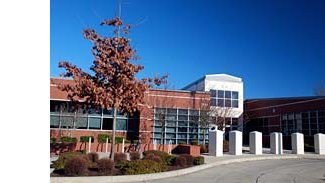News release - FEMA
SEATTLE – The Federal Emergency Management Agency (FEMA) urges residents and business owners to take extra precautions when returning after wildfire-caused evacuations. Dennis Hunsinger, FEMA Acting Regional Administrator for Alaska, Idaho, Oregon and Washington warns that unseen dangers may linger long after the flames die down.
“Fires can leave behind nasty surprises ranging from gas leaks and weakened foundations to exposed wires and power lines,” said Hunsinger. “Check for external damage and exercise caution when entering fire-damaged structures. Play it safe. When in doubt, ask for help or seek advice from an expert.”
Here are some safety tips to keep in mind:
Evaluate all utilities on the property for fire damage. Also check power lines coming into the house. Call your gas company to evaluate service. Contact your utility company immediately if you find downed power lines or smell gas.
Check the foundation for cracks or other damage. Check porches and overhangs to be sure they are adequately supported. If the foundation has been undermined, it may not be safe to enter the building. If you find obvious damage, ask that a building inspector check the building first.
If the door sticks at the top as it opens, it could mean the ceiling is ready to cave in. If you decide to force the door open, stand outside the doorway as you do so to avoid being hit by falling debris. As you enter, look before you step. Floors and stairs may be slippery or covered with debris. Watch for broken glass, nails and other hazards. Check the roof and attic immediately for hidden burning sparks and watch for flare-ups for several hours after the fire.
Be alert for gas leaks inside the house that might not be obvious from outside. Do not strike a match or use an open flame unless you know the gas has been turned off and the area has been well ventilated. Instead, use a flashlight to check for damage.
Turn off the electricity. Even if the power company has turned off electricity to the area, be sure to turn off your circuit breakers. Do not use appliances or motors that have been damaged until they have been repaired or replaced. If you use generators due to the loss of power, make sure they are used outside. All cooking on camp stoves and grills should be done outside. Gas and charcoal fumes can be deadly.
Watch for animals. Small animals that have been burned out of their homes may seek shelter in yours. Scare them away by poking a stick into likely hiding places, taking particular care to listen for the warning sound of a rattlesnake.
Don’t breathe the ash from the fires. Ash can irritate your respiratory system. Use painter masks to protect your airway. Water down the area around your home to reduce flying ash. Keep all windows closed to prevent odors from the burning area from entering your home.
Be careful when removing burned items from the home. Handle all burned plastics with gloves as possible toxins can come off the plastic.
Don’t allow children to play in burned areas. Trees may be weak and could fall unexpectedly and holes in the ground may be covered with ash and not visible.
To reduce your future risk of wildfire damage to your home, consider these tips:
Keep leaves and pine needles from roofs, gutters and downspouts and regularly prune low tree branches and mow dried grass;
Remove excess trees, dead trees and shrubs near the house (use a skilled contractor to remove large trees) and consider landscaping alternatives that don’t include shrubs planted close to the house, such as a rock garden;
Check with local building officials to verify building codes and recommendations;
Determine the potential for flooding and the need for erosion control;
Consider mitigation measures, such as using fire resistant roof materials, including asphalt shingles or metal roofs, tempered glass, and installing spark arresters in chimneys and fire resistant materials on the undersides of decks.
For more information on actions to take to reduce future risk of wildfire damage to your home, go to, www.fema.gov or www.firewise.org.
Thursday, July 30, 2009
Subscribe to:
Post Comments (Atom)







No comments:
Post a Comment